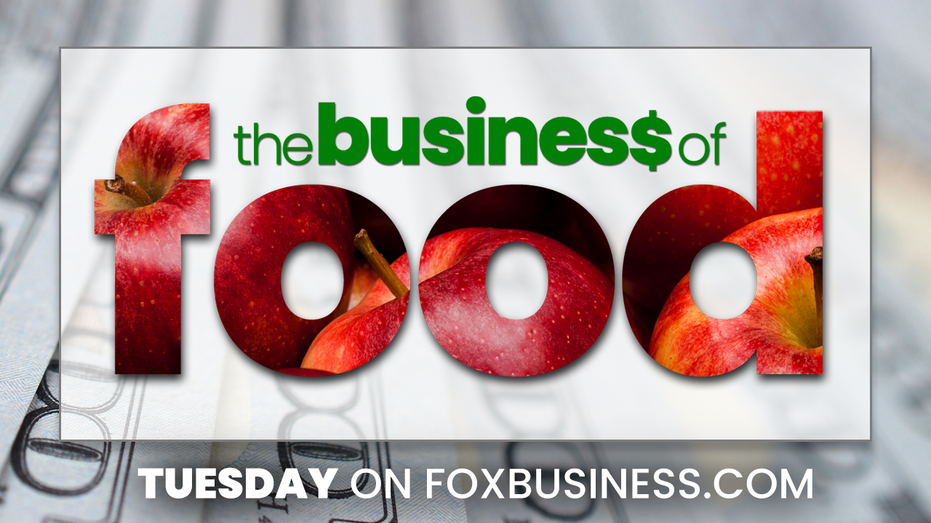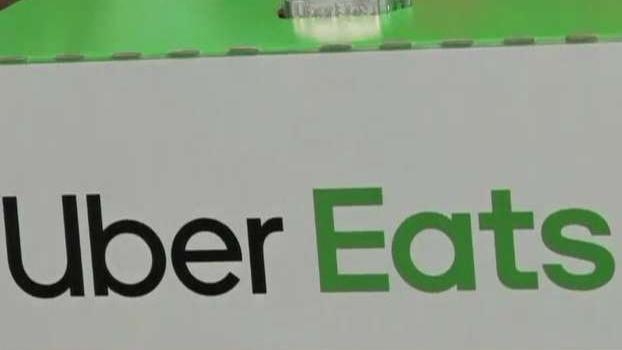Chopt joins Chick-fil-A, Starbucks and others in ditching dining rooms
Food delivery apps are reshaping the restaurant world
Table for none.
More restaurants are getting rid of dining rooms as customers increasingly order food through third-party delivery apps like Uber Eats, Grubhub and DoorDash so they can eat at home.
| Ticker | Security | Last | Change | Change % |
|---|---|---|---|---|
| UBER | UBER TECHNOLOGIES INC. | 74.77 | -0.44 | -0.59% |
| GRUB | NO DATA AVAILABLE | - | - | - |
Chopt, the fast-casual salad company known for luring in wrap-around lines at lunchtime, opened up a pick-up and delivery only location, a first for the restaurant, in New York City’s Lower Manhattan neighborhood.
This outpost aims to bring faster food to customers, who will have to order-ahead via Chopt’s website or app, for both pick-up and delivery which makes up nearly half of its business. The location won’t have lines, tables or cash registers. And customers will be able to grab their orders from shelves when they're ready for pick up.
"We have seen a major need for speed and convenience and at Varick Street, there are no lines giving customers exactly what they want -- the best service, faster and more efficiently than before," Nick Marsh, CEO at Chopt, told FOX Business. "The new store model will be a significant part of our growth moving forward, and with Varick as our pilot location, we will see how it goes, learn and adjust as needed and take it from there."
Chopt joins a number of restaurants entering into the pick-up and delivery only model this year. Chick-fil-A also has no dining room restaurants in Louisville and Nashville where customers order and prepay online, and it's also piloting satellite kitchens for delivery-only orders in cities like Los Angeles, Chicago, and in the Bay Area through a partnership with DoorDash, while Wendy’s also aims to open a delivery-only kitchen, Reuters reported. And Starbucks opened its first pick-up only location for online orders this month in New York City’s Midtown neighborhood.
| Ticker | Security | Last | Change | Change % |
|---|---|---|---|---|
| SBUX | STARBUCKS CORP. | 99.45 | +3.38 | +3.52% |
| WEN | THE WENDY'S CO. | 8.02 | -0.02 | -0.25% |
“Delivery and online ordering are now basic expectations for consumers,” Michael Schaefer, a food and beverage analyst at market research firm Euromonitor International, said. “Ghost kitchens, virtual restaurants and delivery more broadly are forcing operators to reexamine what the restaurant should look like in an era of ubiquitous delivery and smartphone ordering.”
Online delivery is the fastest-growing market in the foodservice industry. Shares of online orders in total foodservice sales globally more than doubled from 2.6 percent in 2014 to 6.9 percent in 2019, according to market research from Euromonitor. Sixty percent of consumers used a third-party delivery service such as DoorDash or Grubhub for delivery orders, according to a survey from the National Restaurant Association and market research firm Technomic Inc.
FOOD DELIVERY FROM GHOST KITCHENS BRINGS RESTAURANT-QUALITY FOOD TO MASSES
Even restaurant reservation services are increasingly rolling out partnerships with third party delivery service as more eaters prefer to dine in than out. OpenTable, a unit of Booking Holdings, announced a new partnership with Postmates, the on-demand delivery platform, to bring more pick-up and delivery options to diners. And it started offering delivery through Grubhub, Caviar and Uber Eats in July for nearly 10,000 restaurants across the U.S. via its app.
Its another way foodservice companies are adapting to changing consumer dining preferences. Forty-two percent of consumers are dining out at least once a week, and nearly one third consider delivery at a top alternative, according to a survey OpenTable, published this month.
| Ticker | Security | Last | Change | Change % |
|---|---|---|---|---|
| AMZN | AMAZON.COM INC. | 210.32 | -12.37 | -5.55% |
| BKNG | BOOKING HOLDINGS INC. | 4,457.17 | +13.75 | +0.31% |
While digital ordering and technology may improve wait times and help eaters get their food faster, they can shut out cash-paying consumers. Some restaurants and grocery stores like Sweetgreen and Amazon Go have faced backlash for eliminating cash as a payment option, which can be discriminatory against the 8.4 million people who don't have bank accounts.
There is no federal law that forces retailers to accept cash, though states, like Massachusettes and New Jersey, and city lawmakers in Philadelphia have implemented policies to prevent companies from switching to bank cards and mobile payments.
While Chopt's new Lower Manhattan location is modeled for credit card only payment models, it said the store is able to accept cash.
CLICK HERE TO READ MORE ON FOX BUSINESS





















